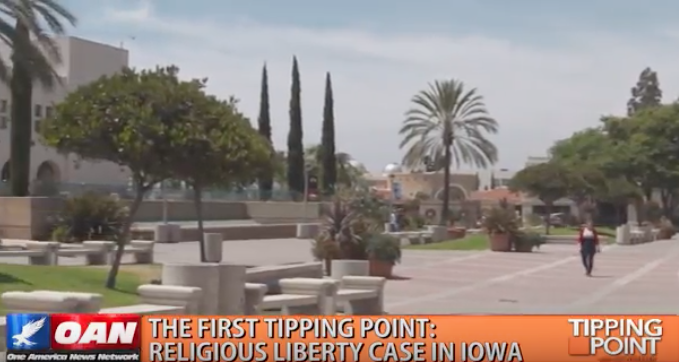Judge Rules in Favor of Christian Group in Lawsuit against University of Iowa

The University of Iowa has been embroiled in a lawsuit brought by a Christian student group, Business Leaders in Christ. A non-profit legal counsel group, Becket Fund for Religious Liberty, represented the Christian student group in their lawsuit. The university had suspended the group because the group did not have a human rights or anti-discrimination clause in its group constitution, but after the lawsuit was filed, 369 other groups were also suspended for not having the clauses in their constitutions. In the end, at least 30 of those groups lost their official statuses due to non-compliance.
The controversy began when the University of Iowa told Business Leaders in Christ that their group status was suspended because the student group rejected a leadership position application of an openly gay student. The applicant’s rejection came as a result of his refusal to forgo participation in a homosexual relationship while serving in the student group. He complained to the University of Iowa, which then suspended the group on the grounds that the group was discriminating against the applicant. We covered the story in August 2018, when Becket Fund noted that the applicant complained to the university a year after he applied for the leadership position, yet he still remained a member of the group.
At the same time, the university claimed that it also suspended a Christian LGBTQ group called Love Works. But, Becket Fund claimed that no suspension took place of that group, while Business Leaders in Christ was suspended as an official student group at the university. But, the judge ruled that the university unfairly applied the compliance rule against the student group. Or, in other words, the university went after Business Leaders in Christ while ignoring the official statuses of secular groups.
In the end, the University of Iowa did not have to pay damages to Business Leaders in Christ and the judge said that the case ultimately was a conflict about the unconstitutional enforcement of rules by the university, but not a conflict between religious liberty and non-discrimination laws.




